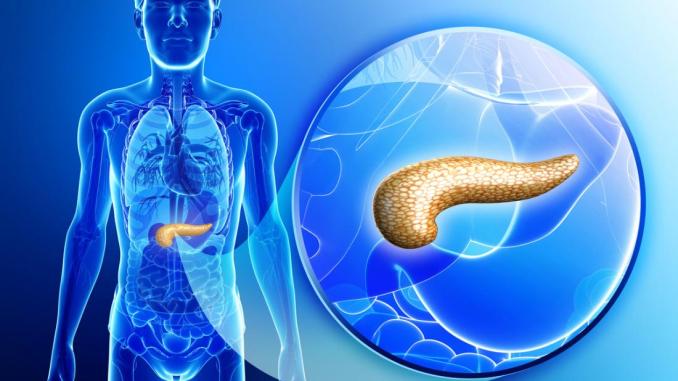
Pancreatic cancer is on the rise worldwide, and is typically diagnosed in later stages when the disease has progressed too far to be cured. Early detection is key to survival (for this and any other cancer) so medical experts are focusing efforts on tests that can detect this disease before it becomes symptomatic.
Pancreatic Cancer Statistics
According to the American Cancer Society Cancer Facts and Figures 2022, about 66,210 people are diagnosed with pancreatic cancer every year. Despite being relatively rare, pancreatic cancer causes 7% of all cancer-related deaths.
Silent Symptoms
The pancreas is a six- to eight-inch long gland that produces digestive juices as well as hormones that regulate the blood sugar and is important in the digestion of the fats we eat. This gland is located in the abdomen behind the stomach and just in front of the spine.
Pancreatic cancer has been called a silent killer because symptoms rarely show up until the disease has progressed and spread to lymph nodes and other organs. This spread contributes to this cancer’s higher mortality rate. Usually, at that point, the cancer can no longer be removed by surgery and also doesn’t respond well to either radiation or chemotherapy.
Of all Americans diagnosed with the advanced disease of this cancer, less than 10% are still alive after 5 years of diagnosis. Therefore, researchers have been hard at work trying to identify markers of early pancreatic cancer that will specifically indicate the presence of the disease before it moves to the advanced stages. One test is showing real promise and is highlighted here.
Promising New Testing Method for Earlier Detection
This is a new blood test method that has shown some promise in clinical trials when it comes to the detection of pancreatic cancer at its earliest stage when it is most likely to respond to treatment. In the early-phase study of the test, it measures the levels of 2 specific proteins in the blood. It distinguishes tissue samples from patients with the cancer from samples from people without the disease. It is also able to distinguish samples from people without pancreatic cancer with other noncancerous pancreatic conditions like pancreatitis.
Ultimately, this test may offer hope to those who are at high risk for the disease.
Research continues with Dr. Zaret saying “We’re going to be testing it in larger and larger sample sizes and doing more cross validation.”
Zaret has promised to further his work by testing it in larger and larger sample size and also doing more cross-validation. This will further ensure the success of the biomarker test for pancreatic cancer early detection.
Researchers at the National Cancer Institute (NCI) believe this testing method holds promise.
“The investigators took a meticulous approach to this study and the results are very encouraging,” according to Sudhir Srivastava, Ph.D., lead researcher at NCI’s Early Detection Research Network.
Earlier Diagnosis is Key
A major challenge of pancreatic cancer is that by the time patients are symptomatic, it is often too late to effectively cure this disease. Research on new and effective testing methods, like the ones profiled here, offer hope that soon effective screening programs will be available to offer future cancer patients quicker diagnosis, more effective treatments, and one day, an effective cure for this disease.
To find out more on this study and to follow along on its development, visit the National Cancer Institute for updates.
Free Help for Cancer Patients in the USA
If you (or someone you know) have been diagnosed with cancer and need help covering the costs of prescriptions, treatment and other expenses, please see our link free financial resources for cancer patients.







